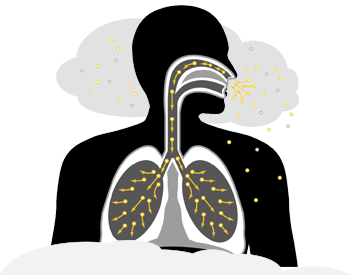Pollution caused by heating your home
You might think it’s a good idea to use a wood-burning stove or fireplace to supplement central heating, especially with rising energy costs. You may also think it’s a sustainable option, which is understandable - but it turns out that it’s not. It’s actually one of the most polluting ways to generate heat.
Much cleaner and less harmful alternatives are available, or you could consider burning less often.
Different types of stoves produce different levels of emissions of particulate matter (PM) (Chief Medical Officer’s annual report 2022: air pollution).
Solid fuel stoves, such as open fires and wood burning stoves, produce the highest emissions of PM pollution.
Non-DEFRA approved stoves are also relatively dirty, while DEFRA approved stoves produce lower emissions.
Pellet fired boilers, oil fired boilers, and gas fired boilers produce the lowest emissions of PM. Electric heating produces no PM emissions in your home.

It’s extremely important to stay warm this winter. If you have no other way of heating your home check out ways of staying cosy and healthy, and see how to make your wood-burner cleaner and more efficient.



